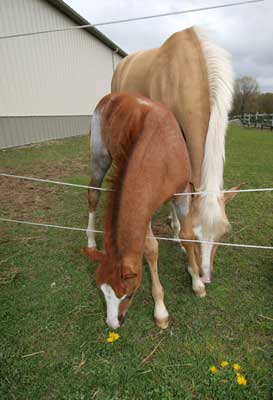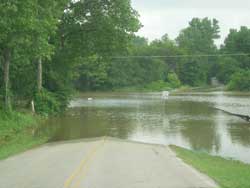Inspect The Barn For Your Horse’s Safety
I went to a seminar recently put on by my vet. We were introduced to the 2 new vets that had just joined the team. We were also reacquainted to the team that is behind the scenes; the office help, the vet techs who  accompany each vet on calls and the barn manager who looks after your horse if he needs to stay for more intensive care. I really appreciate each & every one of these people. They do a great job. A presentation was done by each of the 2 new vets. One was on the importance of proper wound care. I could go on for days about this subject because my horses have given me plenty of practice. But I would like to talk about how you can possibly prevent some injuries.
accompany each vet on calls and the barn manager who looks after your horse if he needs to stay for more intensive care. I really appreciate each & every one of these people. They do a great job. A presentation was done by each of the 2 new vets. One was on the importance of proper wound care. I could go on for days about this subject because my horses have given me plenty of practice. But I would like to talk about how you can possibly prevent some injuries.
Lord knows, both Iggette & Zip had their share of injuries.
Iggette had one injury to the left hind leg caused by a loose fence. The wire was down in one spot of her pasture and tangled in some weeds. This happened all too soon after I purchased her. Doctoring a leg & changing dressings is not what I envisioned for my bonding experience with my first horse.
A few years later, she caught her shoulder on an exposed nail head in the gate post.
Iggette also injured her front feet from pawing at the fence & getting caught on the barbed wire. Each time this happened (twice on each leg), Iggette found herself in the stall with a cast for weeks while recovering. I don’t know who disliked stall rest worse, Iggette or me. Iggette NEVER liked being in a stall. She walked circles the entire time she was confined. This meant ground in manure which was next to impossible to pick out. It was just easier to strip it & start over with clean bedding.
Zip had a puncture wound to a hind pastern. The vet said I was real lucky it didn’t cut a tendon. Then just a few months later, she sliced herself on the under side of the jaw line. This took about 30 stitches to close. The cause of these 2 injuries were never found by either my trainer or myself. We  looked for hours & did not find a spot of blood or the tell tale sign of horse hair on a fence post or tree branch. Zip’s injuries were costly & required weeks of stall rest to heal.
looked for hours & did not find a spot of blood or the tell tale sign of horse hair on a fence post or tree branch. Zip’s injuries were costly & required weeks of stall rest to heal.
With colder weather just around the corner, your horse may start spending more time in the stall. You can prevent some injuries by just being observant of their surroundings. Take time to really look over your horse’s stall, barn & pasture whether you own your barn or you are boarding.
Over the years, I’ve learned what to look for to make sure my horse’s environment is relatively safe. I’ve listed a few of the things to look for below.
BARN & STALLS:
-
Hammer down any nails that have backed out of the wood.
-
Look for any loose or broken boards in the walls that need to be replaced.
-
Check the stall doors & latches to make sure they are working properly and the hardware is securely in place.
-
Make sure the bucket hangers are in good shape. You don’t want to find your horse with the bucket as his hat or using it as a kick ball.
-
Keep the aisle clear of clutter. A loose frightened horse and a cluttered aisle way are not a good combination.
-
Make sure the tack room & especially the feed room have a good lock on the door. You don’t want your baby helping himself to a midnight snack. An open feed room to a horse is like turning a kid loose in a candy store. They just don’t know when to quit and more importantly . . they won’t.
-
Check the fence charger to make sure it is working properly.
-
Check the electrical wiring for damage to the insulation. Rodents (rats, mice & squirrels) will chew thru wires. While most wiring is not in the reach of horses, frayed wires can be a fire hazard.
-
Check for leaks in the roof while it’s raining and mark them for repair on a dry day. You really don’t want rain in the feed/tack room or over your hay storage area.
FENCES:
-
Walk the fence line of both paddocks & pastures to look for loose wire. Look at the posts to make sure the wire is actually attached and not just hanging somewhere near it.
-
Make sure the gates are hanging properly.
-
Check for broken planks on board fences or broken fence posts.
-
If you have an electric fence, make sure the insulators are all in place and that the wire is not shorting out. I had a little paint mare that would actually touch the electric fence everyday just to see if it was working. If it was off, she would poke her head through the fence to get the grass on the other side.
PASTURES
-
Keep the trash picked up. This goes for the barn also. Blowing trash to some horses is the absolute most terrifying monster there ever was; even if the piece of trash is just a small candy wrapper.
-
Make sure to mow as necessary to keep the weeds down. Tall pasture grass/weeds can hide a lot of potenial hazards.
-
If you have had really bad weather (heavy snow, ice, high winds, floods etc), check any trees on the property for damaged branches. Dead branches falling from the trees can happen months after it was damaged.
-
Remove as much of the debris as possible. Any debris that is allowed to stack up in the pasture can become the home for unwanted animals & reptiles. This is a whole other type of hazard to your horse.
If you are boarding your horse, let the owner/mananger know of anything you find that is in need of repair. You could even offer to help with some of the minor repairs. If you own your place, fix the minor things as they are discovered and schedule a weekend to tackle the bigger repairs. The sooner repairs are done, the safer the environment is for your horse.
In my opinion . . . . . It’s not if a horse will get hurt . . . . it’s just when and how bad. Protect your baby, and your wallet, as best you can by just being observant.


